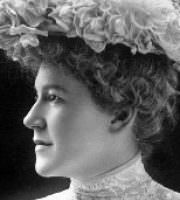He was taller than I expected.
Standing at the white city gate
Parmenides of Elea patiently waited.
What year is this? He asked.
2012, I said.
All these years, he murmured.
Yes, I nodded, you were born
More than twenty five centuries ago.
You were writing in hexameters
About the Way of Truth
And the Way of Seeming,
I reminded him.
Yes, I remember that, he said.
My memory is as good as in my youth.
I used to delve into the Enigma of Being
In the quest for finding the hidden heart of
Certainty and permanence.
We were silent for a while.
And then I said:
I read in a Dictionary of Philosophy
That you believe that reality does not change
And is unknowable.
Well, I still believe that, Parmenides said.
In that case let me ask you this:
If reality is unknowable
Then how do you know
That it does not change?
From:
Paul Hartal, Postmodern Light; Montreal and San Diego: Orange Monad Editions, 2006, p. 24
Copyright ©:
2012, the author

ABOUT THE POET ~
A man of many Odysseys, Paul Hartal is a Canadian poet, author and artist born in Szeged, Hungary. His critically acclaimed books include Postmodern Light (poetry, 2006), Love Poems (2004), The Kidnapping of the Painter Miró (novel, 1997, 2001), The Brush and the Compass (1988), Painted Melodies (1983) and A History of Architecture (1972) ., In 1975 he published in Montreal A Manifesto on Lyrical Conceptualism. Lyco Art is a new element on the periodic table of aesthetics, which intertwines the logic of passion with the passion of logic. In 1980 the Lyrical Conceptualist Society hosted the First International Poetry Exhibition in Montreal., In 1978 Hartal exhibited his paintings at the Musée du Luxembourg and the Raymond Duncan Gallery in France and his canvas Flowers for Cézanne won the Prix de Paris. He also has displayed his oeuvre in museums and galleries in New York, Montreal, Budapest, as well as many other places., He approaches poetry with the credo that the heart of poetry is the poetry of the heart. A recurring theme of his recent work explores the human tragedies of wars and genocides.





